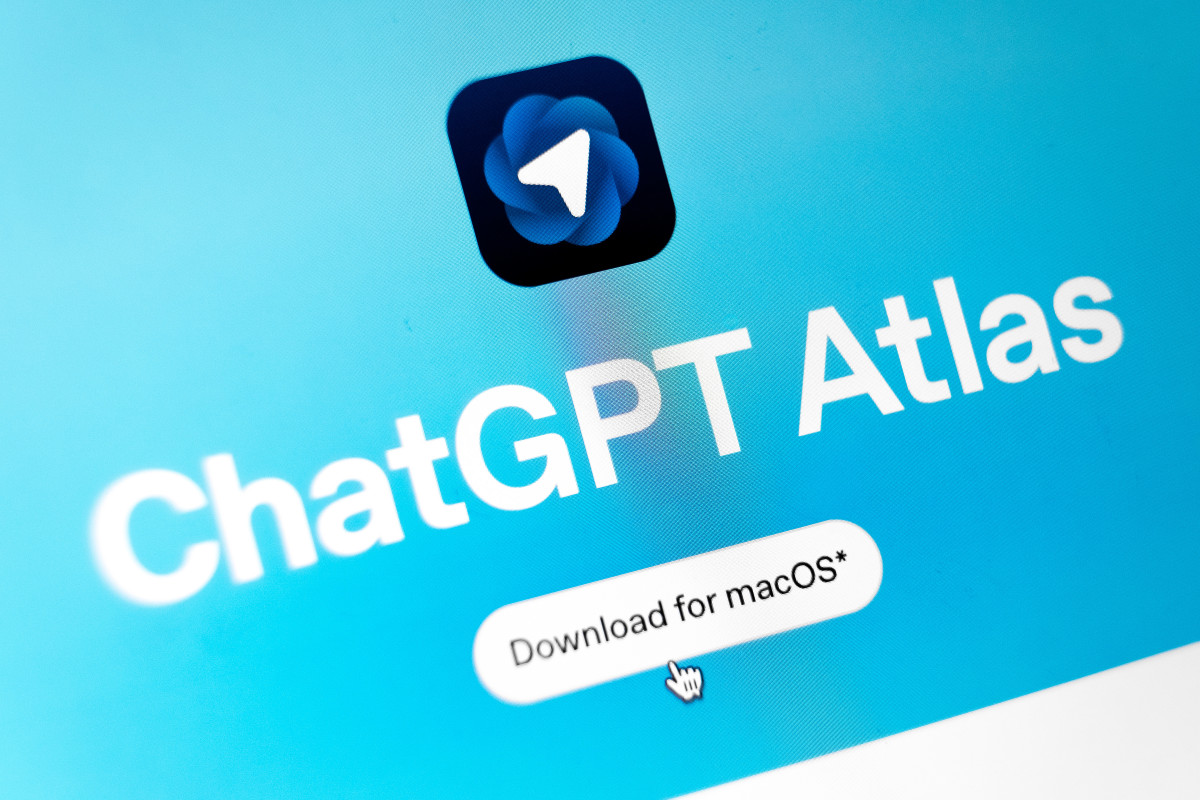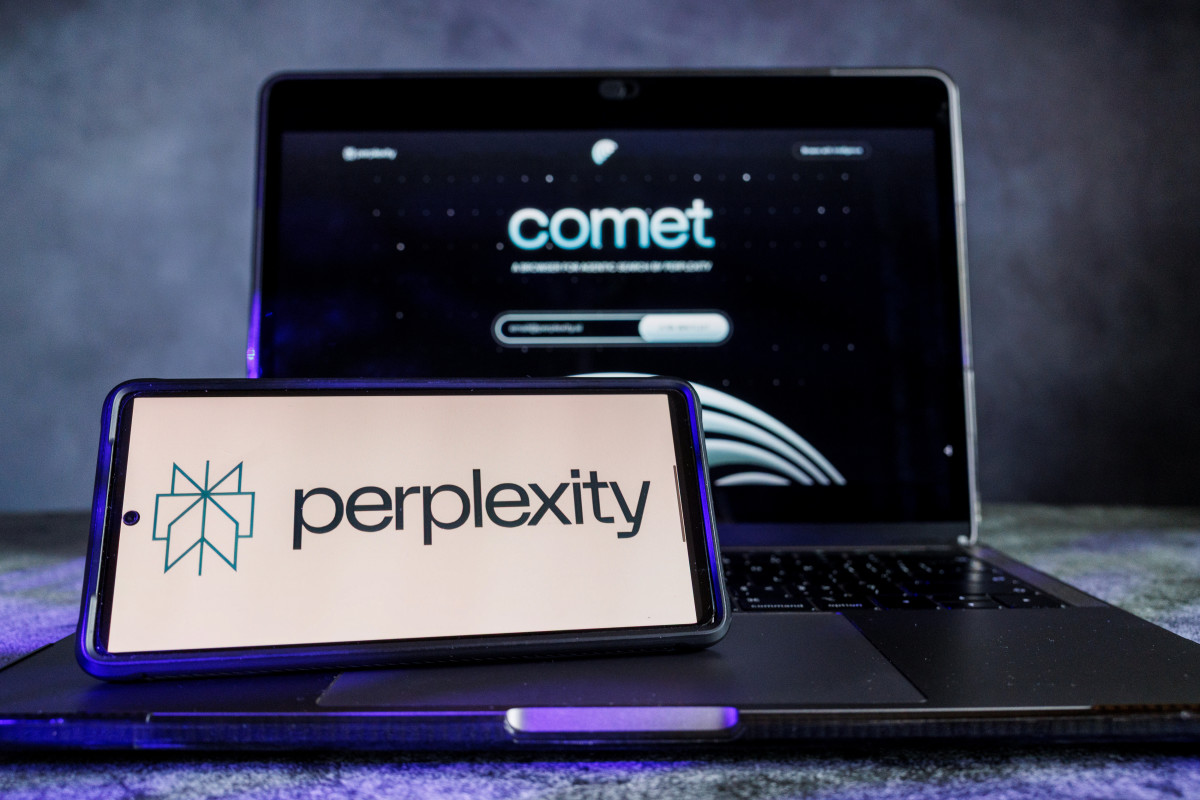The emergence of artificial intelligence has opened the door to countless tools that are readily available for virtually any need. While OpenAI’s ChatGPT was the initial “breakthrough” model that took the public by storm, several prolific tech companies have consistently expanded and improved their own AI models over time. This has given users an overwhelming number of options, and now there’s another decision to make for those who enjoy AI tools—web browsers. The newest addition to the AI browser world, called ChatGPT Atlas, was created by OpenAI and officially released on Oct. 21.
ChatGPT Atlas follows in the footsteps of the popular AI browser from Perplexity, called Comet, creating an interesting debate over which option is better for users. There are also several other competitors already in the market, including Opera’s Neon and The Browser Company’s Dia.
When comparing Atlas and Comet specifically, the two tools take interestingly different approaches. Due to that, we’re going to navigate through the hype to look at what a few tech wizards, companies and creators are saying about AI’s newest debate.
ChatGPT Atlas: The Agent-Mode Powerhouse

OpenAI’s release of ChatGPT Atlas includes a detailed breakdown of what you can expect when using the browser. Not surprisingly, it’s effectively ChatGPT that’s coming along for the ride wherever your internet browsing takes you. Here’s a look at a snippet of the OpenAI rundown of its newest tool:
“With Atlas, ChatGPT can come with you anywhere across the web—helping you in the window right where you are, understanding what you’re trying to do, and completing tasks for you, all without copying and pasting or leaving the page. Your ChatGPT memory is built in, so conversations can draw on past chats and details to help you get new things done.”
It highlights that ChatGPT gets smarter over time and can remember your old browsing history for whenever it’s needed, but only if you choose to allow it. This can come in handy if you’re researching/reviewing products before buying, looking for a job, hunting for a new place to live, or anything else you can imagine.
One of the most interesting aspects of Atlas is its “agent mode,” which allows the tool to actually do work for you (the full agent mode requires a paid ChatGPT account). OpenAI states that it’s “better at researching and analyzing, automating tasks, and planning events or booking appointments while you browse.”
Among the many noteworthy reviews of ChatGPT Atlas was a breakdown from TechCrunch’s Ivan Mehta, who points out that the browser is available to all users, instead of utilizing an invite system like competitors. However, its initial release was only for the Mac, and they’re currently working to bring Atlas to Windows, iOS and Android. For good measure, Perplexity began offering the Comet browser for free in October.
Ultimately, the title of Mehta’s review of Atlas summarizes the opinion well: “OpenAI’s Atlas is more about ChatGPT than the web.”
One review that featured several positive takeaways from using ChatGPT’s Atlas came from Anthony Spadafora of Tom’s Guide. The review cited Atlas’ full-sized, scrollable tabs and the ability to add your favorite browser extensions from the Chrome Web Store.
However, Tom’s Guide also highlighted a few issues with Atlas, including being unable to add a second Google account. The review also pointed to the “constant, subtle nags to upgrade” that were “distracting” and “a real turn off.”
Perplexity’s Comet: A Knowledge Engine and Research Assistant Ready to Take the Wheel

While Atlas takes an “agent” approach that can be extremely beneficial depending on your daily needs, Perplexity’s Comet dubs itself as “your personal assistant.” It summarizes a one-liner of tasks that you can delegate to Comet, including “wrangling inboxes, ordering groceries, staying on top of finances and planning vacations.”
Perplexity’s resource page takes a deeper dive into the types of tools available to users, including a rundown of prompts, shortcuts and a guide on how ot get the best answers from Comet.
From the initial reviews, it sounds as though Comet is what you might expect for a browser that’s gone through the “early” phase already. The bulk of the bumps in the road some tools may come across are a non-issue for the Perplexity browser, and it’s attention to detail earned high marks from Alex Hughes of Tom’s Guide.
“When you use the assistant, Perplexity lists out every single step it takes,” Hughes wrote. “It is painfully granular, but when it is handling your finances, calendar, and accounts, this is exactly what you want.”
The strong review of Comet was summed up with one statement that resonated quite a bit from Hughes.
“I was admittedly skeptical about the rise of AI agents and browsers, but Perplexity’s Comet has changed my mind,” the review said.
Perplexity’s Comet AI browser received high marks from several users across social media as well, and one interesting breakdown in a video below compared it head-to-head with ChatGPT’s Atlas, leading to a few interesting takeaways.
ChatGPT’s Atlas AI Browser vs. Perplexity’s Comet: The Verdict
In the above sections, I highlighted a few noteworthy pieces of information from the reviews offered by TechCrunch and Tom’s Guide of Atlas and Comet. However, some of the most glaring and significant comments are highlighted below, which I’ll summarize following a video from one specific technology podcast that pits the two AI web browsers in a head-to-head matchup.
Stephen Robles of the Primary Technology podcast offered a breakdown of his comparison between Atlas and Comet, providing a few interesting insights. To evaluate the two, he ran the same tasks on both browsers simultaneously. This was an interesting test to watch, and it consistently showed that Perplexity’s Comet could do things somewhat quicker and didn’t have many (if any) significant glitches.
One other takeaway from the clip below is that Robles highlights that for virtually each task, he had to make sure to turn “agent mode” on for Atlas, while Comet handled the tasks without any additional steps.
Another popular tech news and programmer-fueled site, Fireship, offered a blunt assessment of Atlas in a recent review of the new OpenAI product, and didn’t appear to be blown away by the initial returns.
“According to the keynote, OpenAI didn’t want [Atlas] to feel like Chrome with ChatGPT bolted on. And after playing with it for a little bit, I can confidently say, that’s exactly how it feels,” Fireship said of ChatGPT Atlas.
Fireship also stated they think “the reality is, [OpenAI] mostly just copied Perplexity Comet.” However, the clip highlighted several unique and fun aspects of Atlas and mentioned the belief that it’ll likely improve over time.
Here’s a more direct summary of the reviews highlighted above, and also one additional breakdown of ChatGPT’s Atlas vs. Perplexity’s Comet:
- TechCrunch’s Ivan Mehta says “OpenAI’s Atlas is more about ChatGPT than the web.”
- Anthony Spadafora of Tom’s Guide praised Atlas’ full-sized, scrollable tabs and the ability to add browser extensions from the Chrome Web Store, among other things.
Spadafora did point to two significant issues with Atlas—the inability to add a second Google account and the “constant, subtle nags to upgrade” to a paid tier, which is required for full agent mode features. - Alex Hughes of Tom’s Guide said Perplexity’s Comet removed his skepticism about “AI agents and browsers” and praised its granularity and detail, among several other aspects.
- Stephen Robles of the Primary Technology podcast tested the two AI browsers head-to-head, and Comet emerged as the more fine-tuned and faster choice than Atlas for most tasks. It also appeared to have fewer glitches and minor errors.
- Tech site Fireship stated the belief that OpenAI “mostly just copied Perplexity Comet.”
- Financial Express’ Tech Desk offered a detailed evaluation of Atlas and Comet, stating the former is better suited “for those whose productivity design involves automating workflows, reducing manual tasks and integrating tightly with ChatGPT.
The same review stated that Comet is the better tool for those “focused on speedy research, exploration, reading, summarizing and lightweight tasks.” It also praised Perplexity’s free-tier model for offering a large number of features.
In summary, Perplexity’s Comet appears to be more fine-tuned, which is understandable considering ChatGPT’s Atlas just hit the market. Regardless, the early edge mostly pointed to Comet, although the debate could look much different as OpenAI clears its new release phase.
Related: ‘Reacher’ Star Alan Ritchson Reveals Baffling Aspect of Workout Routine
